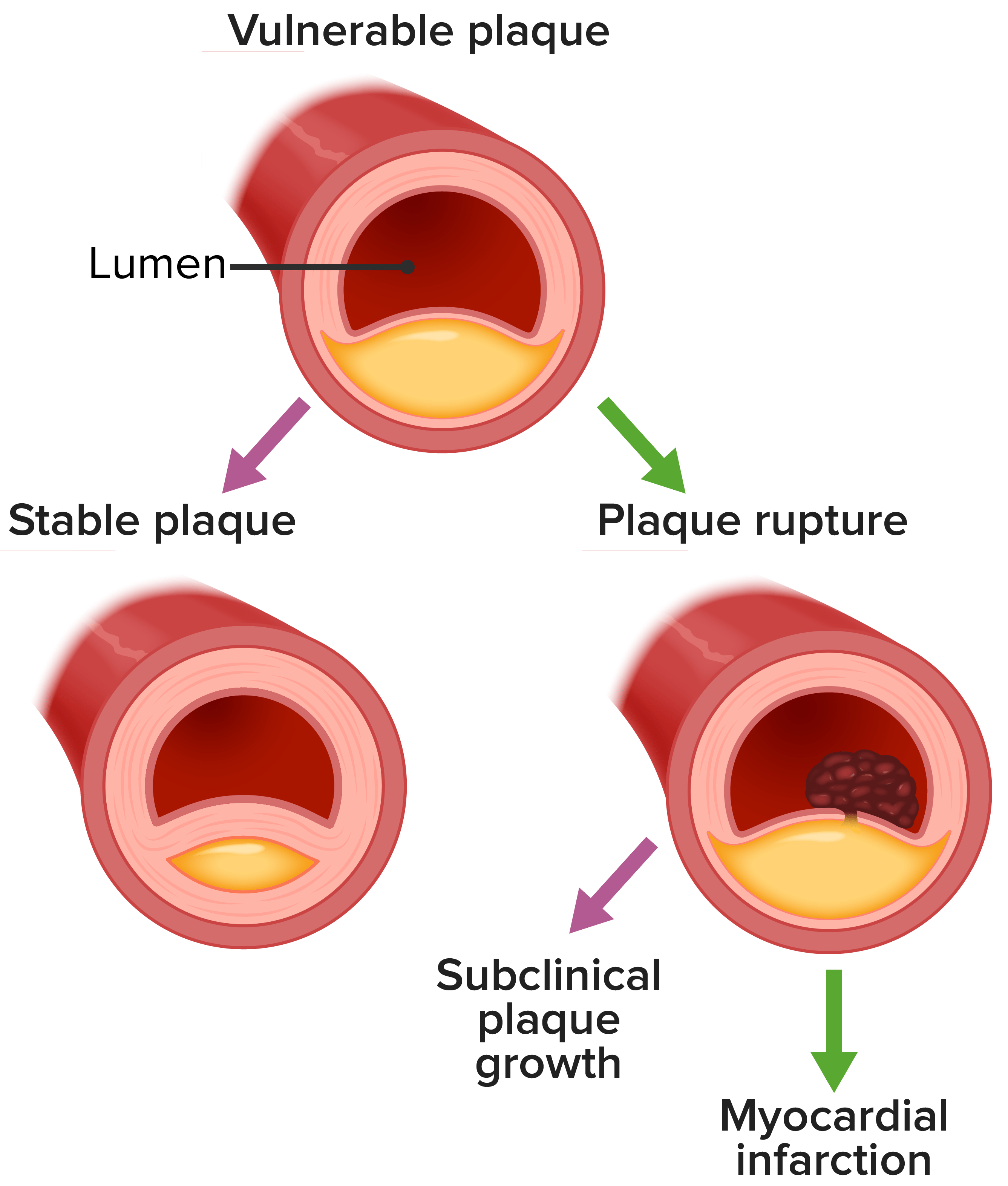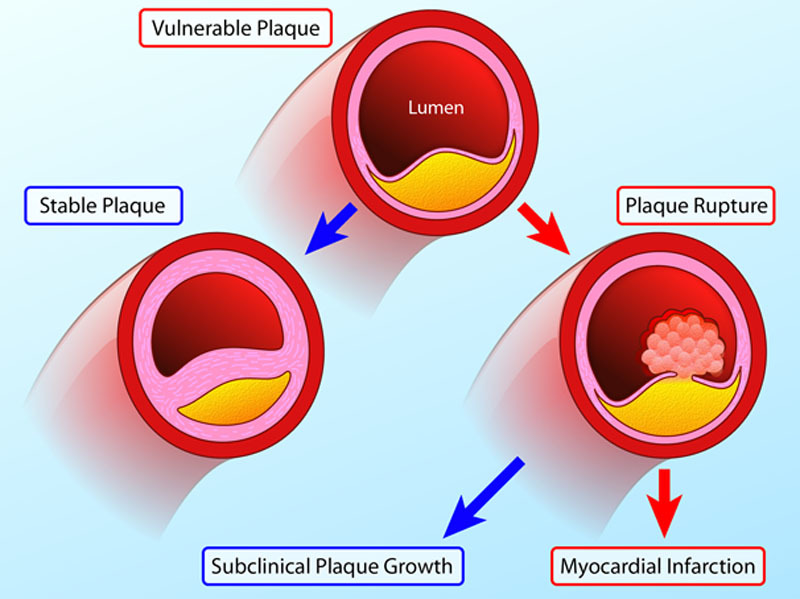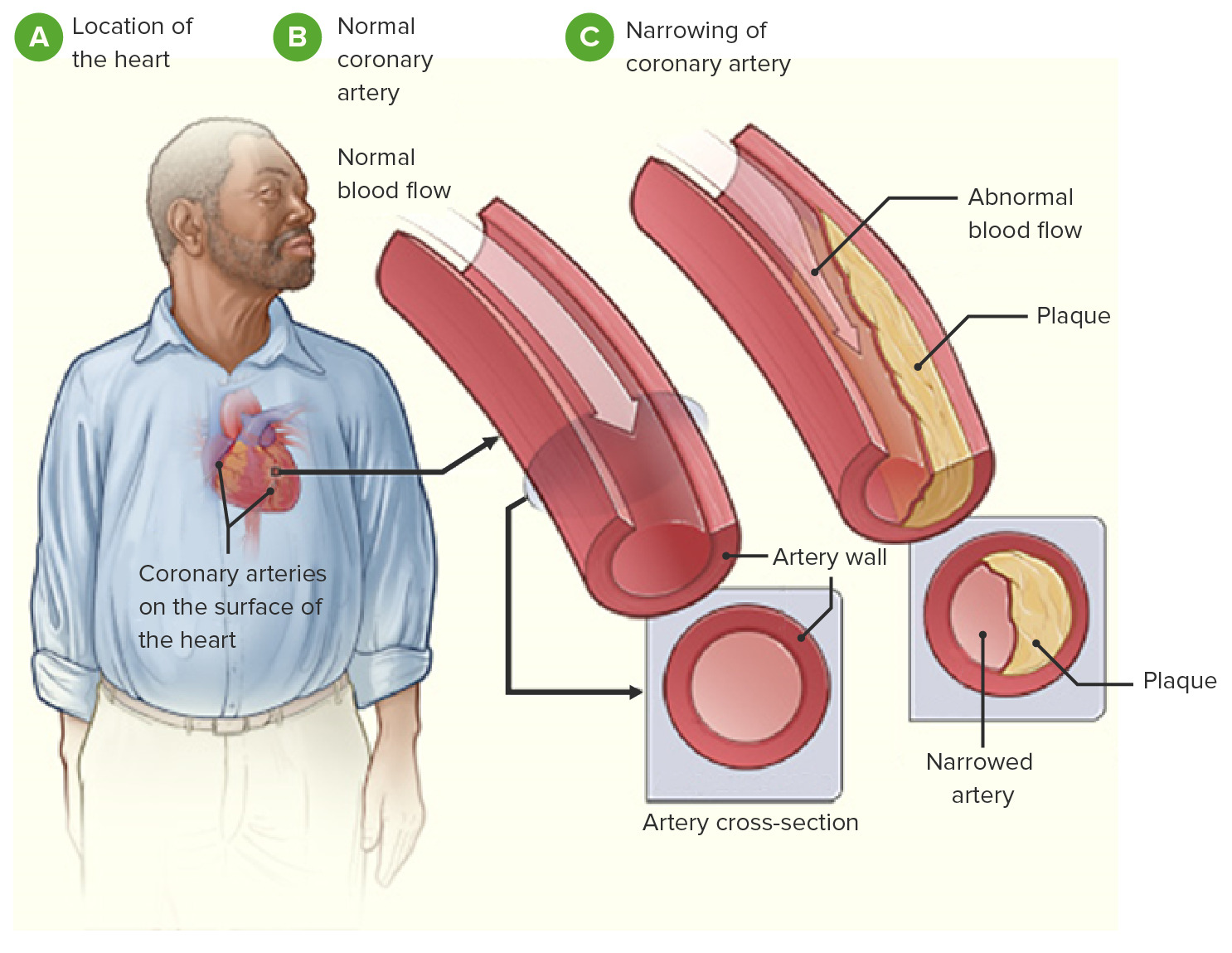Playlist
Show Playlist
Hide Playlist
Ischemic Heart Disease: Etiology and Epidemiology
-
Slides Ischemic Heart Disease.pdf
-
Reference List Pathology.pdf
-
Download Lecture Overview
00:00 We're going to talk here in these series of slides about a very important cause of heart disease. 00:08 This is going to be one of the major things that ends up causing morbidity and mortality for roughly a third to 40% of the population globally. 00:19 So if you are sitting next to two friends, look to the right, look to the left. 00:24 One of you will probably exit this world via ischemic heart disease. 00:30 Kind of a scary thought. Alright, with that happy entry, let's get started. 00:36 Fundamentally, in ischemic heart disease or IHD, it's a balancing of how much blood supply the heart gets versus how much it needs in order to maintain itself, to maintain viability. 00:53 And usually, under most circumstances, we have an excess supply. 00:58 So blood supply is shown here. 01:00 Perfusion usually exceeds any of our myocardial oxygen and nutritional demands. 01:05 That is until other diseases supervene. 01:08 If it gets to the point where things are pretty close to being equal, then a little bit of extra activity can tip us over so that the demands of the myocytes exceed the perfusion. And that will be stable angina. 01:24 Meaning, we'll get a little sense of heart chest pain and we'll talk about the mechanism shortly. 01:29 But if we stop doing whatever it is we're doing, the scales come back to even. 01:34 Now, however, if the scales tip completely the other way where demands far exceed the nutritional supply, the perfusion. 01:42 Then, we're talking about out and out, ischemia and infarction. 01:46 Okay. That's a big picture, but that's really all ischemic heart disease is about. 01:51 It's a big problem. I've already said, a third of us are going to die as a result of this. 01:58 It's the leading cause of death worldwide. 02:00 Although cancer is catching up, ischemic heart disease is still the most common way that the grim reaper takes us off the planet. 02:08 So about 9 million deaths each year are attributable to this. 02:09 So about 9 million deaths each year are attributable to this. 02:12 In the United States alone, 700,000 Americans, In the United States alone, 700,000 Americans, almost three quarter of a million Americans will experience a myocardial infarction each year. 02:22 That's what an MI is, a myocardial infarction. So they will have a heart attack. 02:26 And the lifetime risk of coronary artery disease. 02:31 That's not necessarily to say a heart attack but the lifetime risk of developing coronary artery disease which is the major cause of ischemic heart disease is about 50% for men lifetime. 02:43 So half of us, me, maybe, are going to have some coronary artery disease. 02:49 And in women, the risk over a lifetime is 40%, so it's substantial. 02:53 As I've already mentioned previously, more than 90% of ischemic heart disease is caused by obstructive atherosclerotic vascular disease. 03:03 And we'll talk about this briefly but there is a whole separate talk elsewhere that you can listen to my dulcet tones explain how atherosclerosis develops in greater detail. 03:14 We'll cover it briefly but it's the major cause. 03:17 And then there are 10% of causes of ischemic heart disease that are other causes, which we will talk about very briefly. 03:25 Those other causes of ischemic heart disease include increased demand. 03:31 So remember the scales? I may have actually, not bad atherosclerotic disease of a coronary artery, but I may increase demand so much by increasing heart rate or increasing blood pressure that I exceed the capacity, even of those normal coronaries to do their job. 03:50 You can also have diminished blood volume. 03:54 So if you have inadequate blood supply because you've exsanguinated that's going to be a cause of ischemic heart disease. 04:01 You may not have serious coronary artery disease but you don't have enough blood to flow through those vessels. 04:07 You can have diminished oxygenation. 04:09 So, remember, it's not just providing nutrition to the myocardium. 04:12 It's providing oxygen because you have to generate ATP. 04:15 So if the lungs are compromised, if we're not getting adequate oxygenation due to pneumonia or congestive heart failure, that's going to be a cause of ischemic heart disease and if you don't have enough red blood cells or their oxygen-carrying capacity is diminished, say, because of carbon monoxide poisoning. 04:34 That's also going to be a cause of ischemic heart disease. So that's 10%. Let's cover the other 90%.
About the Lecture
The lecture Ischemic Heart Disease: Etiology and Epidemiology by Richard Mitchell, MD, PhD is from the course Ischemic Heart Disease.
Included Quiz Questions
Which of the following conditions is a leading cause of death worldwide?
- Ischemic heart disease
- Cancer
- Cerebrovascular diseases
- Alzheimer disease
- Diabetes
Customer reviews
5,0 of 5 stars
| 5 Stars |
|
5 |
| 4 Stars |
|
0 |
| 3 Stars |
|
0 |
| 2 Stars |
|
0 |
| 1 Star |
|
0 |






